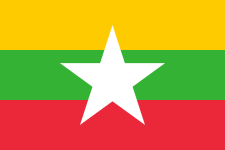 Leading civil society groups, media lawyers from around the country and international experts met on 27 January 2018 to discuss proposals to reform laws which restrict freedom of expression online. Over the last few years more than 100 cases, mostly for defamation, have been brought under these laws, involving journalists, political actors and human rights defenders. The aim of the workshop was to agree on media reform proposals that will limit abusive cases and support Myanmar’s transition to democracy.
Leading civil society groups, media lawyers from around the country and international experts met on 27 January 2018 to discuss proposals to reform laws which restrict freedom of expression online. Over the last few years more than 100 cases, mostly for defamation, have been brought under these laws, involving journalists, political actors and human rights defenders. The aim of the workshop was to agree on media reform proposals that will limit abusive cases and support Myanmar’s transition to democracy.
“It is very important to try to generate consensus among civil society organisations regarding proposals to reform laws which are being used to restrict freedom of expression online,” said Toby Mendel, Executive Director, CLD. “This workshop provided an opportunity for participants to discuss very concrete law reform proposals.”
The workshop focused on three laws in particular, the 2004 Electronic Transactions Law, the Official Secrets Act, 1923 and the 2013 Telecommunications Law. A set of concrete draft proposals for reform of the most problematical provisions in these laws was discussed at the workshop, with participants putting forward ideas for further development of the proposals.
The event was organised by Myanmar Media Lawyers’ Network (MMLN) and the Centre for Law and Democracy (CLD), with support from International Media Support (IMS) and FOJO Media Institute. It took forward earlier discussions on the issue, including a workshop hosted by MMLN and CLD on 9 December 2017. The workshop was followed by a General Assembly meeting of MMLN members.
“MMLN has made enormous progress in the three years since it was founded with support from CLD and IMS,” said Than Zaw, (then) Secretary of the Myanmar Media Lawyers’ Network. “We sucessfully elected a new Executive Committee, which provides us with an opportunity for renewal and the involvement of both old and new members in running MMLN. MMLN will continue to develop the proposals to reform these three laws and, together with civil society groups and journalists, we will then advocate for law reform.”
Digital Content Reform proposals [English]
Digital Content Reform proposals [Burmese]
For further information, please contact:
Toby Mendel
Executive Director
Centre for Law and Democracy
Email: toby@law-democracy.org
+95 (0)944 155 7724
www.law-democracy.org
twitter: @law_democracy
Than Zaw Aung
Deputy Chair
Myanmar Media Lawyers’ Network
+95 9 795586316
thanzawau@gmail.com



 Today, the Centre for Law and Democracy (CLD) concluded a joint training programme for senior information officers from more than 30 different public bodies with the Nepal National Information Commission (NIC). The three-day programme focused on a range of issues including practical steps information officers can take to improve citizens’ access to information, the wider benefits of the right to information, regional developments, classification of information and future directions for information officers and the NIC.
Today, the Centre for Law and Democracy (CLD) concluded a joint training programme for senior information officers from more than 30 different public bodies with the Nepal National Information Commission (NIC). The three-day programme focused on a range of issues including practical steps information officers can take to improve citizens’ access to information, the wider benefits of the right to information, regional developments, classification of information and future directions for information officers and the NIC. The Digital Security Guide for Journalists was launched today in Yangon. The Guide is a simple, accessible tool to help journalists protect their communications and digital devices against hacking, surveillance and other forms of digital harassment. It was prepared by the Centre for Law and Democracy (CLD) in collaboration with International Media Support (IMS), FOJO Media Institute and the Myanmar Press Council (MPC).
The Digital Security Guide for Journalists was launched today in Yangon. The Guide is a simple, accessible tool to help journalists protect their communications and digital devices against hacking, surveillance and other forms of digital harassment. It was prepared by the Centre for Law and Democracy (CLD) in collaboration with International Media Support (IMS), FOJO Media Institute and the Myanmar Press Council (MPC). The Myanmar Media Lawyers’ Network (MMLN) and the Centre for Law and Democracy (CLD) organised a workshop with civil society groups and lawyers from across the country on 9 December to discuss reform of laws which restrict freedom of expression online, including the Electronic Transactions Law, Official Secrets Act, Telecommunications Law, News Media Law and certain provisions of the Penal Code. Numerous cases have been brought under these laws, most of which were brought for political purposes.
The Myanmar Media Lawyers’ Network (MMLN) and the Centre for Law and Democracy (CLD) organised a workshop with civil society groups and lawyers from across the country on 9 December to discuss reform of laws which restrict freedom of expression online, including the Electronic Transactions Law, Official Secrets Act, Telecommunications Law, News Media Law and certain provisions of the Penal Code. Numerous cases have been brought under these laws, most of which were brought for political purposes. The Centre for Law and Democracy kicked off a new right to information (RTI) project in Pakistan today with a public presentation on the benefits of RTI. The project aims to provide support to information commissions and local government actors in Punjab and Khyber Pakhtunkhwa provinces of Pakistan with a view to improving implementation of RTI there. It is being undertaken as part of the Support to Local Governance Programme being run by the official German technical cooperation organisation, Deutsche Gesellshaft für Internationale Zusammenartbeit (GIZ) GmbH.
The Centre for Law and Democracy kicked off a new right to information (RTI) project in Pakistan today with a public presentation on the benefits of RTI. The project aims to provide support to information commissions and local government actors in Punjab and Khyber Pakhtunkhwa provinces of Pakistan with a view to improving implementation of RTI there. It is being undertaken as part of the Support to Local Governance Programme being run by the official German technical cooperation organisation, Deutsche Gesellshaft für Internationale Zusammenartbeit (GIZ) GmbH. The Centre for Law and Democracy has prepared an analysis of the Pakistan Right of Access to Information Bill. The Bill, passed last week by the Pakistani National Assembly, is identical to the version passed by the Senate in May 2017. The Bill earned 105 points on the RTI Rating. This is far better than the right to information law currently in force, the 2002 Freedom of Information Ordinance, but far weaker than the groundbreaking laws adopted by Khyber Pakhtunkhwa and Punjab provinces in 2013.
The Centre for Law and Democracy has prepared an analysis of the Pakistan Right of Access to Information Bill. The Bill, passed last week by the Pakistani National Assembly, is identical to the version passed by the Senate in May 2017. The Bill earned 105 points on the RTI Rating. This is far better than the right to information law currently in force, the 2002 Freedom of Information Ordinance, but far weaker than the groundbreaking laws adopted by Khyber Pakhtunkhwa and Punjab provinces in 2013. The Centre for Law and Democracy is this year celebrating International Right to Know Day, 28 September, by undertaking a few different activities. We are hosting an Ask Me Anything on Reddit on the theme of the Day, with support from colleagues in Argentina (CELE), South Africa (ODAC), Spain (AIE), Tunisia (GoAct) and Uganda (Catherine Anite). In previous years, we have had a huge response to these events.
The Centre for Law and Democracy is this year celebrating International Right to Know Day, 28 September, by undertaking a few different activities. We are hosting an Ask Me Anything on Reddit on the theme of the Day, with support from colleagues in Argentina (CELE), South Africa (ODAC), Spain (AIE), Tunisia (GoAct) and Uganda (Catherine Anite). In previous years, we have had a huge response to these events.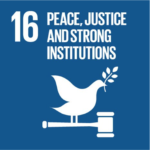 The Centre for Law and Democracy has assessed the compliance of ten Canadian public authorities with Sustainable Development Goal (SDG) Indicator 16.10.2, which is: “Adoption and implementation of constitutional, statutory and/or policy guarantees for public access to information”. The methodology behind the assessment was developed by the Freedom of Information Advocates Network (FOIAnet) and assessments are being conducted by different FOIAnet members in a number of countries around the world. CLD has produced a report summarising the results of the assessment, Canada: Civil Society Parallel Assessment of Compliance with Sustainable Development Goal Indicator 16.10.2.
The Centre for Law and Democracy has assessed the compliance of ten Canadian public authorities with Sustainable Development Goal (SDG) Indicator 16.10.2, which is: “Adoption and implementation of constitutional, statutory and/or policy guarantees for public access to information”. The methodology behind the assessment was developed by the Freedom of Information Advocates Network (FOIAnet) and assessments are being conducted by different FOIAnet members in a number of countries around the world. CLD has produced a report summarising the results of the assessment, Canada: Civil Society Parallel Assessment of Compliance with Sustainable Development Goal Indicator 16.10.2. On International Right to Know Day , The Centre for Law and Democracy joined a global coalition of civil society organisations and concerned citizens committed to ensuring a strong access to information (ATI) system in Canada to issue a letter to the President of the Treasury Board, Scott Brison, calling on him to withdraw the government’s inadequate Access to Information Act reform legislation, Bill C-58 and come forward with a bill that would address seriously the broken access to information system. We have reproduced the letter below.
On International Right to Know Day , The Centre for Law and Democracy joined a global coalition of civil society organisations and concerned citizens committed to ensuring a strong access to information (ATI) system in Canada to issue a letter to the President of the Treasury Board, Scott Brison, calling on him to withdraw the government’s inadequate Access to Information Act reform legislation, Bill C-58 and come forward with a bill that would address seriously the broken access to information system. We have reproduced the letter below.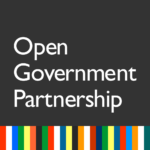
 The Asian Development Bank (ADB) is currently conducting a consultation on its proposals to reform its right to information policy, the Public Communications Policy 2011. An submission to the consultation by CLD concludes that, after important advances at the ADB in 2005 and 2011, the current Draft Consultation Paper can only be described as disappointing. There are few innovations over 2011 and, in the most problematical area, namely the regime of exceptions, there are even some rollbacks.
The Asian Development Bank (ADB) is currently conducting a consultation on its proposals to reform its right to information policy, the Public Communications Policy 2011. An submission to the consultation by CLD concludes that, after important advances at the ADB in 2005 and 2011, the current Draft Consultation Paper can only be described as disappointing. There are few innovations over 2011 and, in the most problematical area, namely the regime of exceptions, there are even some rollbacks.

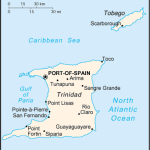


 Information officers from government ministries and public bodies in Jordan met today at the National Library in a networking event to foster debate around creating a “community of practice” for these officers. Under the patronage of HE Dr. Mohammed Al Momani, Minister of State for Media Affairs and government spokesperson, the networking event was a follow-up to the successful trainings on the implementation of the Access to Information (ATI) Law organised by UNESCO Amman Office, Centre for Law and Democracy (CLD) and Department of the National Library as part of the EU funded and UNESCO implemented “Support to Media in Jordan” Project.
Information officers from government ministries and public bodies in Jordan met today at the National Library in a networking event to foster debate around creating a “community of practice” for these officers. Under the patronage of HE Dr. Mohammed Al Momani, Minister of State for Media Affairs and government spokesperson, the networking event was a follow-up to the successful trainings on the implementation of the Access to Information (ATI) Law organised by UNESCO Amman Office, Centre for Law and Democracy (CLD) and Department of the National Library as part of the EU funded and UNESCO implemented “Support to Media in Jordan” Project. 
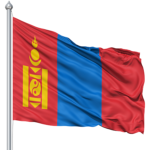 After many years of debate and numerous versions, the government of Mongolia has finally placed a draft Broadcasting Law before parliament. The Centre for Law and Democracy (CLD) welcomes this much needed initiative which provides an opportunity to set clear rules for the licensing of broadcasters, to create an independent regulatory body, to promote diversity in the airwaves and to establish a fair complaints system. While the draft Law achieves some of these goals, an Analysis released today by CLD shows that major revisions are still needed.
After many years of debate and numerous versions, the government of Mongolia has finally placed a draft Broadcasting Law before parliament. The Centre for Law and Democracy (CLD) welcomes this much needed initiative which provides an opportunity to set clear rules for the licensing of broadcasters, to create an independent regulatory body, to promote diversity in the airwaves and to establish a fair complaints system. While the draft Law achieves some of these goals, an Analysis released today by CLD shows that major revisions are still needed. 